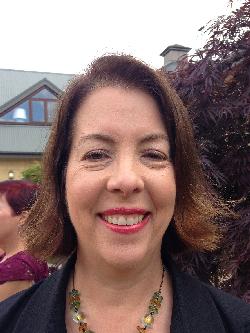Jesus chooses the unlikely
- Details
- Written by: Jennifer Lumsden
 My parents met in China after travelling from opposite ends of the world for language study in preparation for mission work. Mum from Toronto and Dad from Melbourne. After clandestine "dates" in the cemetery, the only place with any privacy, they married and left for Malaysia, as the Communists closed in.
My parents met in China after travelling from opposite ends of the world for language study in preparation for mission work. Mum from Toronto and Dad from Melbourne. After clandestine "dates" in the cemetery, the only place with any privacy, they married and left for Malaysia, as the Communists closed in.The challenge of village life was formative for Ewan and Priscilla. They countered the isolation by establishing a foundation of love, service and respect for each other and trusting the Lord Jesus. One strategy agreed upon early was to avoid complaining because they knew it would consume their energy, wear them down and distract them from their work.
The strong foundation stood them in good stead and, I wonder if it would have developed to the same extent with a more "ordinary" start to married life, we will never know.
A young girl, Dorca came to work for them doing household tasks and some childcare of my older siblings. Mum taught Dorca English and, in turn, she helped Mum with Cantonese.
Born in a low-income family, Dorca was illiterate and did not have access to school. She would not have expected to meet an educated English speaking man, let alone one who treated her with respect and courtesy. Dad treated everyone the same way and did not foresee how significant it would be for Dorca. For Dorca seeing up close how Dad treated Mum, how they cared for and helped each other, and Dad’s kindness and respect towards Dorca surprised her and led Dorca to consider the God my parents loved and spoke about. The God who had brought them far from their home to share Jesus with strangers, the God of Love who did care about people without means. Subsequently, Dorca took the step of faith in Jesus.
Following the years in Malaysia, we settled in suburban Sydney and the local Anglican parish.
Kevin Giles Responds to Dr Lionel Windsor.
- Details
- Written by: Christopher Appleby
 Kevin Giles first reply to Lionel Windsor.
Kevin Giles first reply to Lionel Windsor.
I am delighted that a Moore College lecturer, Dr Lionel J. Windsor, is critically reading my last book, What the Bible Actually Teaches About Women (Or: Cascade, 2018). I always write to encourage open debate and discussion. In addition, I am very appreciative of the fact that Lionel wrote to me first to express his concerns and criticisms, mainly on my translation of Genesis 1:27, and in his blog I am now answering he has recorded my response (see http://acl.asn.au/category/authentic/theology/). In his initial email to me personally I read him to be virtually accusing me of deliberately falsifying the evidence and deliberately rendering Gen 1:27 to say what I wanted it to say. He seemed to be saying, if I deliberately cheated on this verse nothing I said in my book of 260 pages should be uncritically assumed to be true. In reply, I admitted I had made a bad mistake in giving the pronoun in the second line of verse 27 in the plural following the English NRSV translation that gives the plural "them" when the Hebrew has the singular pronoun. I assured him it was a careless mistake with no intent to be dishonest; the several scholars that read the chapter did not note this mistake; I would write immediately to the publisher and ask that this mistake to be corrected (and I sent him my email to W&S); my mistake was inconsequential - I built absolutely nothing on the number of the pronoun; and in v 26 the pronoun is in the plural and in v 28 the verbs following Adam are in the plural.
What the Bible Actually Teaches on Women by Kevin Giles
- Details
- Written by: Paul Perini
Kevin Giles delights in Australia and its ideal of being an egalitarian nation. This ideal is not always present and for Kevin the subordination of women, as taught in certain Christian communities in Australia, is one such exception. A deeply offensive one.
The teaching of the subordination of women upsets Kevin Giles deeply. He has advocated for equality between men and women for over 40 years. He has preached, spoken at conferences and written numerous books. He has at least 4 reasons for opposing the notion of women’s subordination.
Read more: What the Bible Actually Teaches on Women by Kevin Giles
Defining Subordinationism
- Details
- Written by: Kevin Giles
Subordinationism.
Most theological text books mention a trinitarian error called, ‘subordinationism’ but they do not agree on how this error is to be defined. Possibly this is the most inadequately defined of all the major trinitarian heresies.
1. The emergence of the term ‘subordinationism’.
In the fourth century, several groups of theologians who could not accept the use of the word homoousios (one in being) to define the Father-Son relationship in the creed of Nicea (325) were lumped together and called ‘Arians’- followers of Arius - by the Nicene fathers. Some of them insisted that they were not followers of Arius.[1] Later, the term ‘Arianism’ became a term either to designate those who in some way questioned the full divinity of the Son, or, as a catch-all pejorative term to designate any who deviated from to be teaching on the Trinity given in the creeds and later in the Reformation confessions.[2] From the middle of the sixteenth century until the late nineteenth century the term ‘Anti-Trinitarianism’ was often used as a synonym for the very broad understanding of ‘Arianism’ just mentioned.[3] In the middle of the nineteenth century it came to be recognised that a specific and precise term was needed to speak of those who, in differing historical times, proposed that in some way the Son and/or the Spirit were subordinated to the Father in the immanent Trinity. First, the English term ‘subordinationism’ began to be used for this purpose, and then later in German, ‘subordinationismus.’[4] From then on, this error could be contrasted with the errors of tritheism and modalism, and Arianism recognised as but one form of subordinationism. This technical term immediately discloses something about this theological error. It has to do with the sub-ordering or ranking of the Son and/or the Spirit below the Father; the hierarchical ordering of the trinitarian persons.
- Details
- Written by: Christopher Appleby

From CBE International:
There are many male leaders in the church who want to empower women leaders, but they’re stuck. They want to empower, but don’t know how to go about doing it. As a male leader, I have a strong conviction of the need to empower women in their God-given talents, passions, and leadership.
Loving Scripture, Living Egalitarian
- Details
- Written by: Christopher Appleby
This article appeared in the print version of Mutuality, THE CBE International journal as "Text or Pretext: Loving Scripture, Living Egalitarian"
I was raised complementarian. More importantly, I was raised in something of a theological echo chamber where my complementarian convictions went undisputed. All diligent Bible readers would obviously conclude that men were to lead, and even more obviously, that women were not to be pastors. What could be simpler?
ABC Investigation into Domestic violence
- Details
- Written by: Christopher Appleby
ABC News and 7:30 has been carrying out an investigation into domestic violence with disturbing evidence of domestic violence occurring in church communities. American research provides one important insight: men who attend church less often are most likely to abuse their wives.
For the full article click here.
7:30 report 19/7/2017 on ABC iview

